Fear and loathing in Lachin Exclusive report from the epicentre of events
"Do not go where the path may lead, go instead where there is no path and leave a trail." With such a parting word from America's most prominent thinker and writer, Ralph Emerson, a freelance Caliber.Az correspondent, whose main place of work is a structure in the housing and utilities sector, went on a business trip to Lachin District as part of a large group of relevant departments to participate in preparations for the transfer of the local infrastructure under Azerbaijan's jurisdiction. Considering the widespread public interest in Azerbaijan in the issue of the imminent return of the city of Lachin, as well as the villages of Zabukh and Sus under the control of Baku, we offer readers a report on this trip.
I cannot call myself a pioneer in terms of writing a report on Lachin, since Azerbaijani colleagues have already made a noise here before me. However, I hope that I will be able to shed some light on some details of what is happening today in Lachin. Let me remind you that by the end of August, Armenian settlers illegally residing in the city of Lachin, as well as Zabukh and Sus villages, many of whom came to our region from the Middle East, will leave these territories. Are the newcomers to these places ready for this? About everything I saw, in order…
The Second Karabakh War returned to Azerbaijan the territories of the Karabakh region and East Zangazur occupied by Armenia, captured 30 years ago. The victory over the occupiers was consolidated by the Tripartite Statement of November 10, 2020. The document clearly states Baku and Yerevan's obligations. Azerbaijan has fulfilled and continues to fulfil the conditions of the statement within the specified time, while Armenia is trying to stall for time, waiting for the words of a miracle to change the geopolitical situation in the Caucasus. The assertiveness of the Azerbaijani authorities, however, leaves no doubt that sooner or later Armenia will have to fulfil all the conditions of the document signed by it.
Of course, I did not announce to the temporary Armenian residents of the city that I am not only an employee of the housing and communal services structure but also cooperate with the media in my spare time. After all, then they would hardly want to share their thoughts with us – the journalistic fraternity in these parts has not been very popular lately. But the Armenians were not averse to talking to a simple Azerbaijani hard worker, who was also in overalls in such a heat. But more on that later.
Let us recall that we can still come to Lachin (until September 1) accompanied by Russian peacekeepers. A certain part of Azerbaijani society is dissatisfied with this fact, but I dare say, based on the experience gained during the trip, that at the current stage, intermediaries on the ground are actually necessary. If, of course, we choose a political and diplomatic solution to the remaining issues rather than brute force.
So, we entered the Lachin corridor from Shusha. At the post at the exit from the fortress city, peacekeepers were waiting for us, accompanied by whom we continued our journey. Before reaching Lachin itself, our group stopped at the Russian peacekeeping base to discuss some details of the trip with the officers. I must say, servicemen from the Russian Federation live modestly, but cleanly and with comfort. The Russians generously provided us with Azerchay tea and pastries purchased from an Armenian stall nearby. In general, the peacekeepers are friendly to Azerbaijan's representatives and willingly respond to our requests. I noticed the contingent's rather diverse ethnic composition - here are Russians, Buryats, Yakuts, and North Caucasus natives - a kind of army expression of modern Russia's multiculturalism. At the same time, it was gratifying that the representatives of our country are here with dignity and confidence of the owners of the land, even if under Russian peacekeepers' temporary responsibility.
While we were at the Russian peacekeeping base, the Russian military and our representatives held a meeting at which they decided how to ensure the extinguishing of forest and other fires that started as a result of arson by Armenians. As far as I understand, it was on this day that it was decided to provide passage for several fire crews of our Emergencies Ministry. It also became clear from the conversations between Azerbaijani representatives and Russian peacekeepers that the last Armenian residents of the Lachin district will leave it by September 1. The week-long hitch is most likely related to the remaining organisational issues regarding the transfer of infrastructure functioning in these territories. Another thing is that during this time, illegal settlers leaving Lachin District will almost certainly try to steal everything they can by dismantling the bathrooms and the already time-worn houses to the last brick. They are not, however, permitted access to truly valuable Azerbaijani objects.
After all the formalities with the peacekeepers were resolved, and the teapots were emptied, we – a group of Azerbaijani utility services, accompanied by the Russian peacekeepers – entered the Lachin corridor.
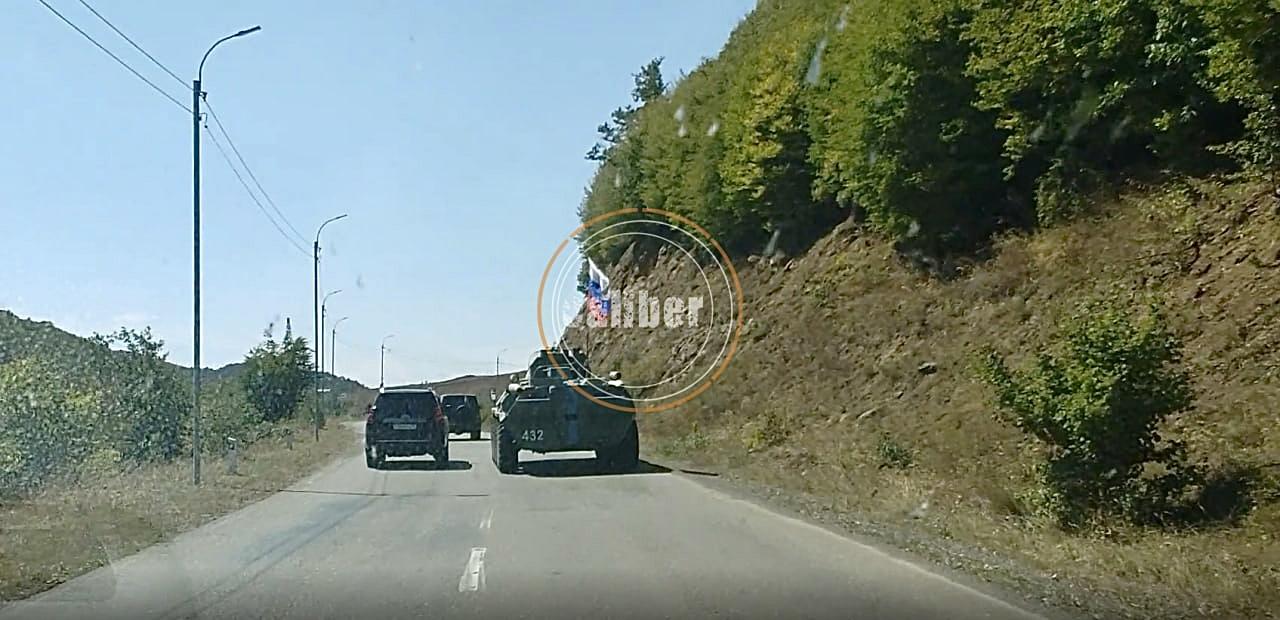
Immediately one of the cars with Armenian license plates was approaching, sharply wedging between our SUVs.
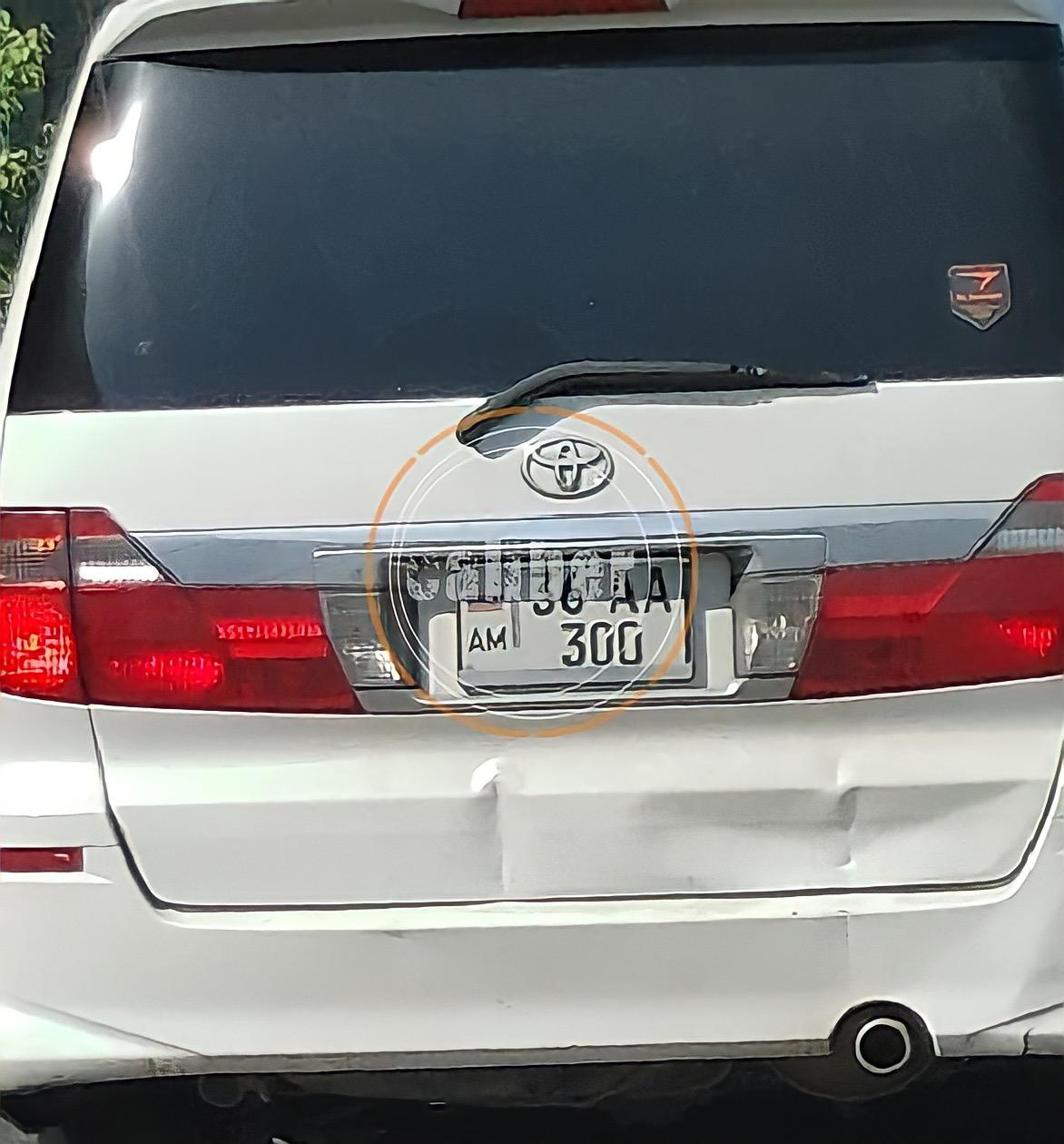
The people accompanying us told me that vehicles of the Armenian special services patrol this road. The passengers in those vehicles review all cars with Azerbaijani license plates passing here via a video recorder. They will not be here very soon, but now they are collecting “operational”, as it seems to them, information.
While entering Lachin city, it seems that you are returning to 1992. All buildings, residential buildings, office buildings and shops are old and dilapidated. Lachin plunged into a lethargic sleep for 30 years after the Azerbaijanis left it.
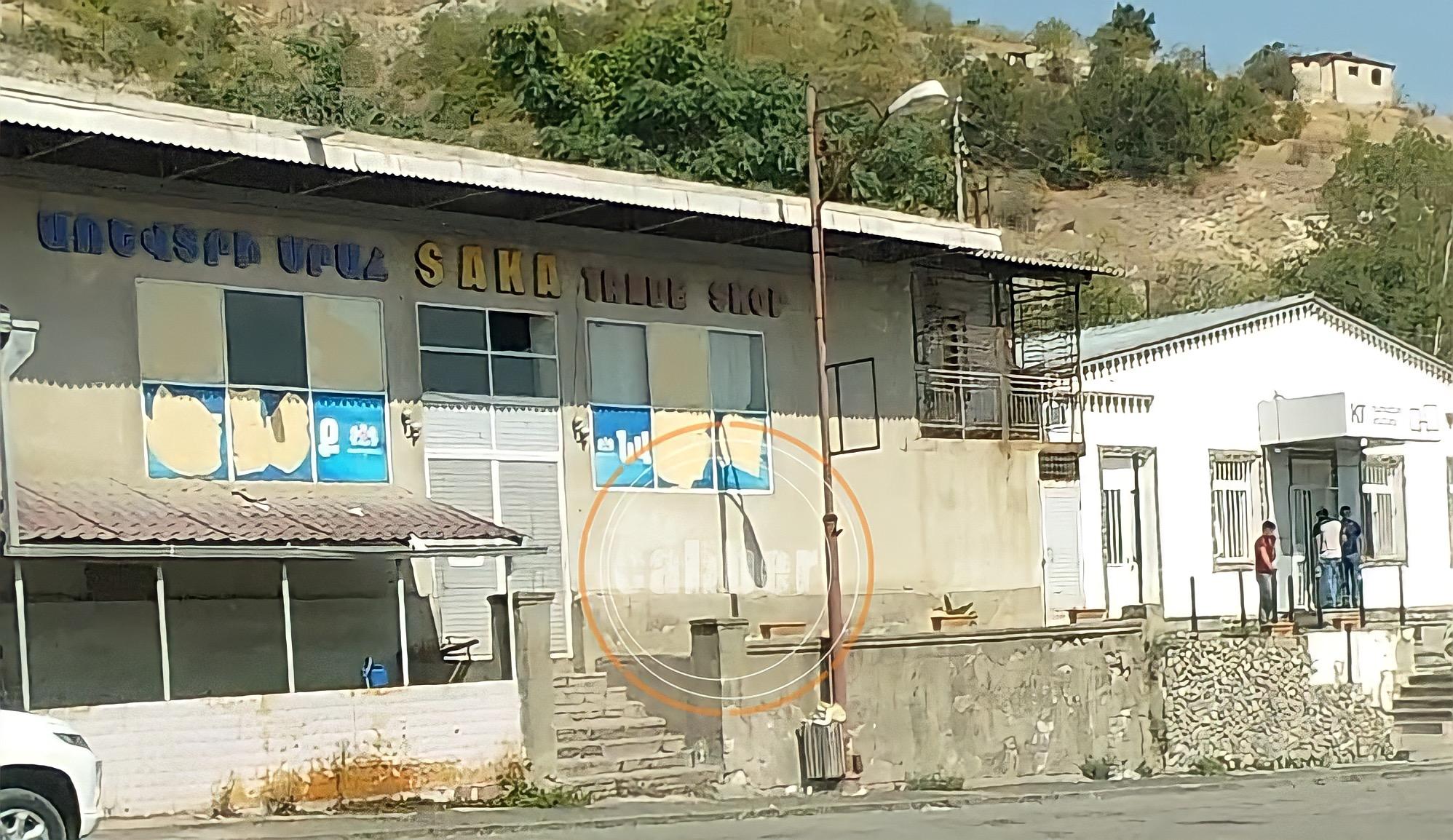
The Armenians have not built anything new in the city over these decades, except for some business facilities founded by Yerevan’s crafty entrepreneurs. Even on a hot, sunny August day, Lachin is grey, depressing and abandoned. The dull look is typical not only for the old Soviet buildings, but also for the few alien Armenians living out their last days in Lachin.
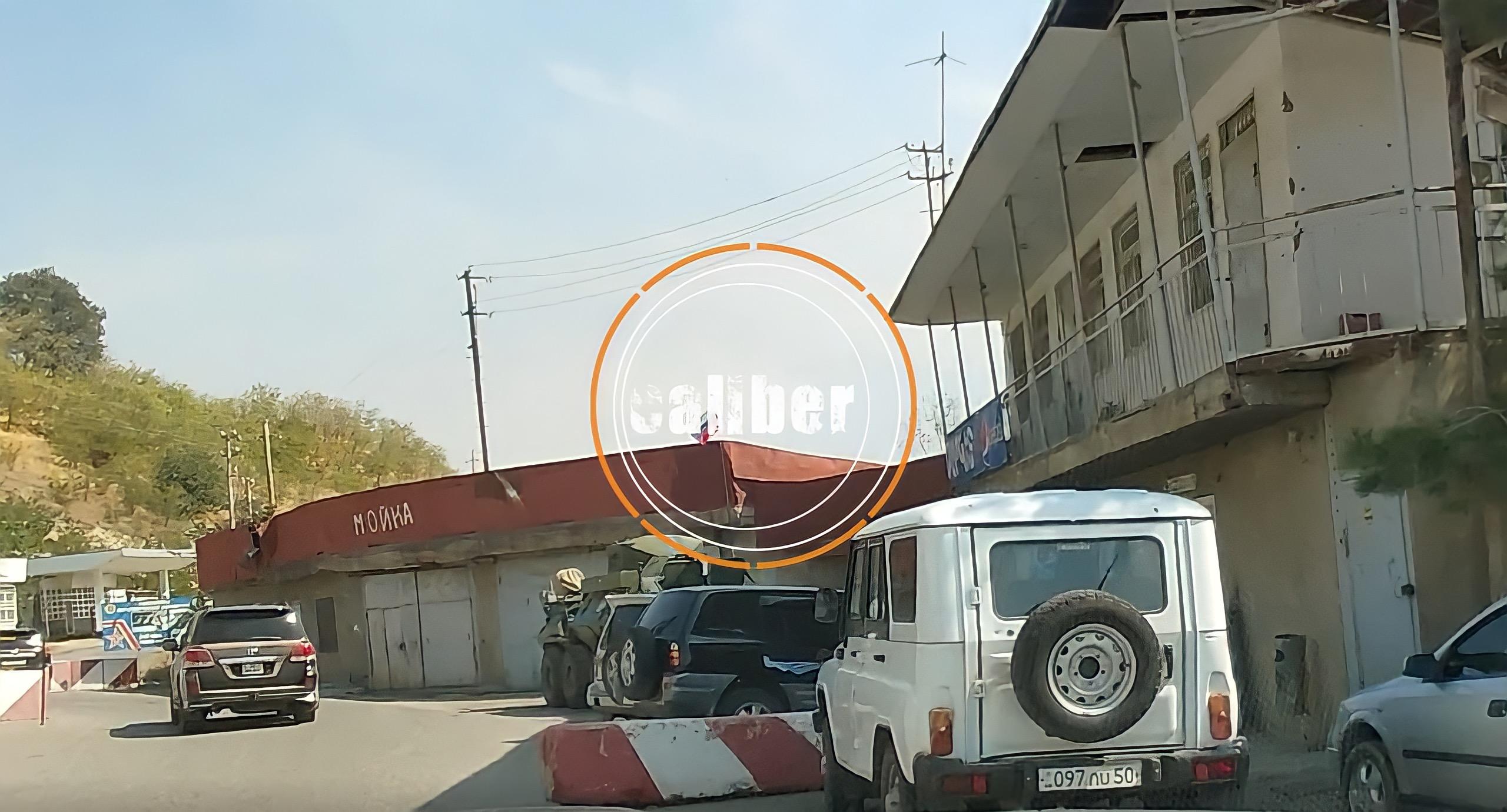
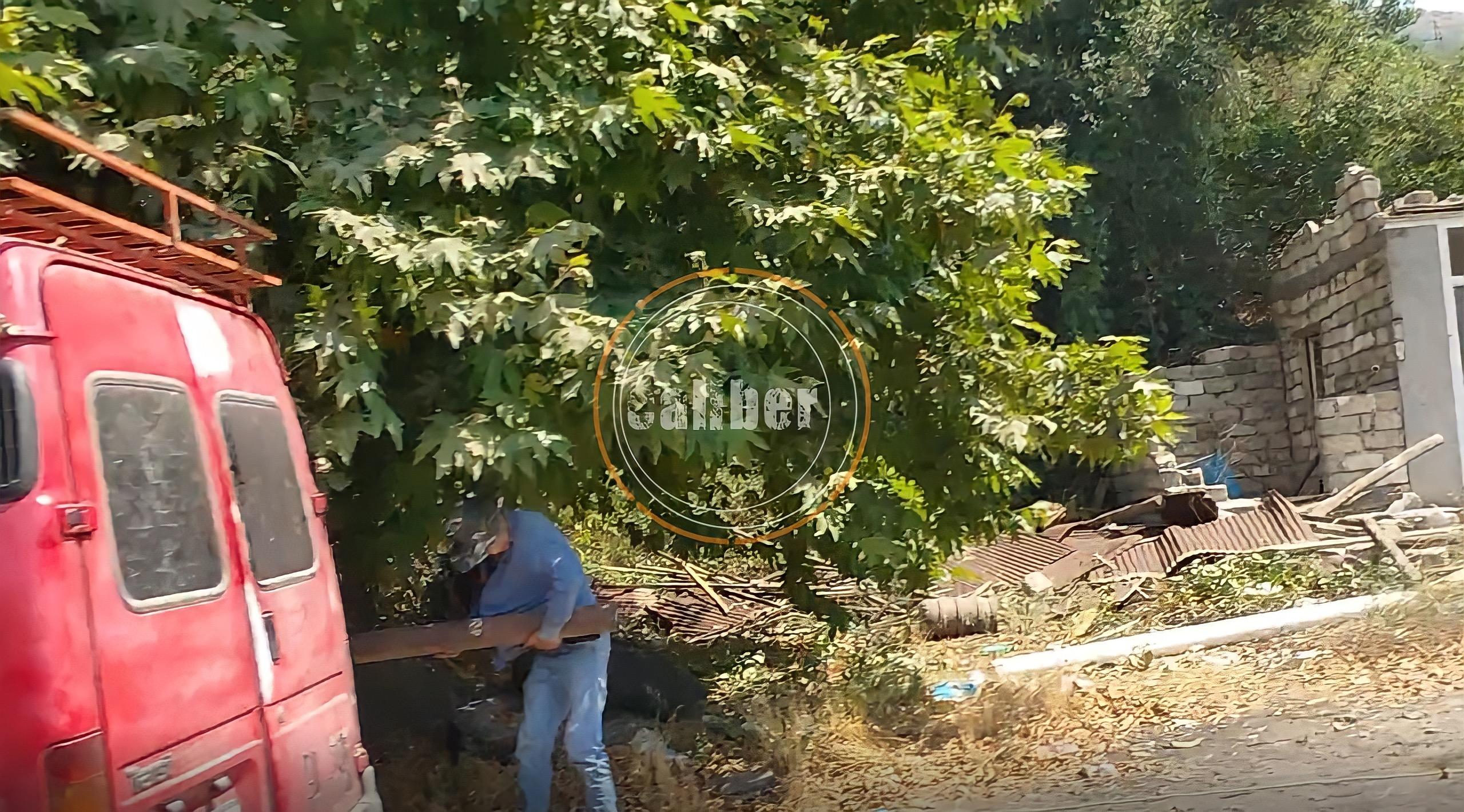
While reviewing the city's infrastructure, I managed to talk to one middle-aged Armenian. At first, he was simply watching us from a distance, apparently not daring to come closer. Seeing his interest, I approached myself. I gave him a pack of Sobranie cigarettes. When he saw the inscriptions in the Azerbaijani language, he grinned.
“I haven’t smoked Azerbaijani Sobranie cigarettes yet. I didn't think I would have to smoke them in such circumstances,” the man fluently said in the Russian language.
- Which circumstances do you mean?
- I mean, you will come, and we are leaving our houses.
- Have you lived here since 1992?
- What does it matter? My sons were born here, their homeland is here. I have lived here for more than half of my life. Where should we go now? (my interlocutor said by smoking)
- On the way here, I saw burnt houses and forests. The city is abandoned, nothing has been built here for 30 years. Is this homeland?
- “You should not compare us with yourself. Azerbaijan has oil, gas and strong allies, but we have nothing. We cut down trees to sell them later or to heat ourselves. Today the Russians support us, tomorrow they won't support us. What should our people do? Moreover, not everybody burns houses. Lebanese Armenian burn houses in Aghavno (Zabukh). They will get compensation. Nobody burns houses in Lachin. I didn't burn,” the interlocutor noted.
- What about the money, billions of dollars, collected from the Diaspora?
- Did I see them? They remained there (he was nodding towards Armenia), we received nothing. Now they say that they gave us 250,000 drams ($617.39) for resettlement. Some 300,000-350,000 drams ($740.87-864.35) are required for one truck, all prices have increased. Is it possible to take away all belongings by one truck? Where can we go? Nobody is waiting for us in Armenia, in Stepanakert (Khankendi).
Our conversation was interrupted by another local resident standing nearby. Realising as a result of the conversation that I was an Azerbaijani, he began to shout something unpleasant in the Armenian language. It is strange, but instead of negativity and aggression, I smiled. I thought how easy it is to be condescending when you represent a victorious country.
At this moment, our group called out to me. We were waiting for a trip to the Sus village, where we had to review the local infrastructure. The service personnel there are still Armenians. I managed to talk to some of them. One of them, who introduced himself as Serop from Askeran, said that life in Karabakh all these years was not easy. We felt that we were sitting on a powder keg and it exploded in 2020.
I noticed that while talking to me, Serop used only the Azerbaijani names of settlements – Lachin, rather than “Berdzor”, Zabukh rather than “Aghavno”, Karabakh, rather than “Artsakh”. Moreover, he mentioned the Azerbaijani settlements not to please us. Apparently, many Karabakh Armenians are accustomed to mentioning Azerbaijani names. Serop complained that he would have to return to Askeran, in which there is no work.
- Here there was a permanent and well-paid job. What should we do in Askeran? Serop added.
- Who or what prevents you from accepting Azerbaijani citizenship? After all, no one forbids you to do this. There is a lot of work here. There is a construction site today in the part of Karabakh returned by Baku. Workers, especially local ones, both Azerbaijanis and Armenians, are always required.
- Maybe it is wrong to say this to the man, but I am afraid of ours and yours. So much blood has already been spilt on this land. Maybe I will see a Turk whose brother, father, and friend died in the war. Will he talk to me? Each of us lost someone or someone of our family members or relatives who was wounded in two wars. It will be difficult, Serop answered.
- Firstly, not a Turk, but an Azerbaijani. Secondly, the Germans also fought with the Russians, but they were able to reconcile.
- I don't know, time will tell. You have built a good road [Lachin detour road]. No one expected that everything would happen so quickly, and the authorities never told us that we would have to leave here,” Serop said.
We are going back. There are huge areas of scorched earth along Lachin road. When you drive along a mountain serpentine, it is possible to see how forests and meadows are burning down in the valley. The Armenians not only burn, but also cut trees. The walnut trees are carefully laid along the road. Valuable wood can be sold. Meanwhile, along the road, it is possible to see a few Armenian "woodcutters". Dejected by the departure from the Azerbaijani territories, Armenian men dismantle houses, while women and children gather mountain blackberries or think about something in the shade of trees that have not yet been cut down.
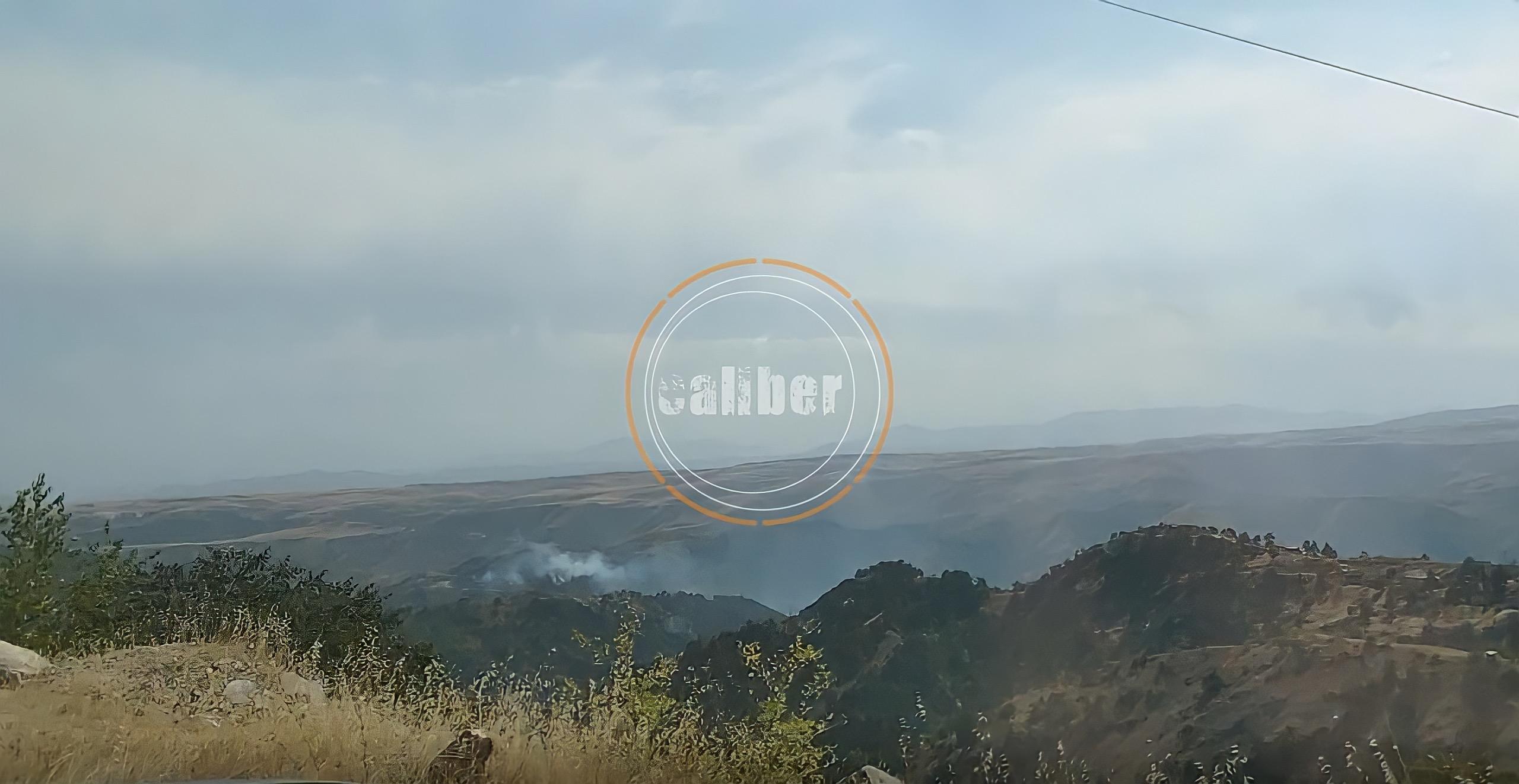
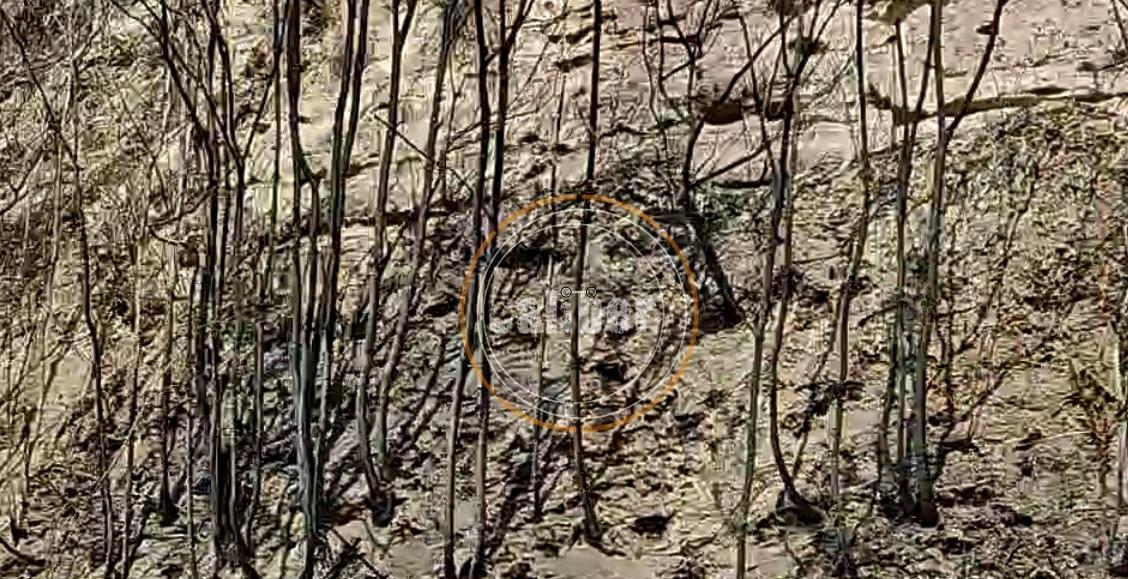
While leaving Lachin, I could not get rid of the feeling of inner emptiness from the situation as a result of thirty lost years. I do not greatly sympathise with the departing Armenians. They violated the laws of the Universe, trying to build their happiness on someone else's grief, on the tears and blood of our children. These laws, unlike the laws of international law, work flawlessly.
The Dashnaks and revanchists have not gone away, their propaganda has done and continues doing its job. However, the world is not black and white. Many Karabakh Armenians are beginning to discern a new reality through the weakened Dashnak ideology, hatred and resentment at a difficult fate. While communicating to us, people of middle and older age remember their peaceful, serene life in Azerbaijan - the one that was thoughtlessly exchanged for the fascist ideas of "miatsum" [an idea based on the demand of the Armenians living in the Karabakh region of Azerbaijan to annex the areas partially populated by ethnic Armenians next to indigenous Azerbaijanis] and "genetic incompatibility" three decades ago. After two bloody wars, victims and tragedies, people, even the most stubborn ones, are forced to reassess their values. In Karabakh, it is possible to realise that the Armenians were simply deceived, they were executioners and victims at the same time during the period of the dying Soviet empire. It is impossible to realise this tragedy fully and quickly as we would like. Thirty-four years of confrontation cannot disappear immediately. However, the mind, poisoned by decades of propaganda, is being cleared. Azerbaijan returned. Once and forever.
Mukhtar Sharifov








